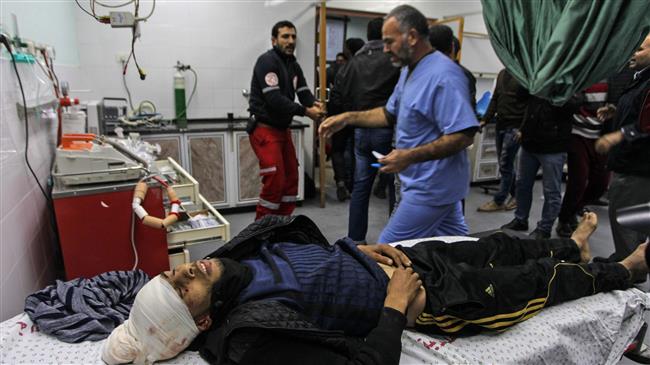
RNA - On Wednesday, Ashraf al-Qidra, the spokesman for the ministry, warned that the health situation in the coastal strip has entered an “unprecedented stage” due to the ongoing electricity crisis.
While Gaza needs nearly 500 megawatts of electricity per day, it only receives less than half of that amount. As a result, residents of the coastal enclave can have access to electricity only a few hours a day.
According to Mohammed Thabet, a spokesman for the electricity distribution company in Gaza, while the demand for electricity has risen due to cold weather, the daily distribution of power to the enclave had been as low as 178 megawatts last week.
Thabet also noted that the amount of fuel imported from neighboring Egypt had declined in recent days. Egypt has closed major parts of its border with Gaza in recent years, but has allowed fuel imports.
The news came a few days after the World Health Organization (WHO) office in Palestine warned that the fuel shortage crisis in the Gaza Strip will soon affect all hospitals in the sliver.
The WHO noted that health facilities in Gaza will be running out of fuel in maximum two months.
Earlier this month, people in Gaza took to the streets to protest the increasingly unlivable conditions in the enclave, as they are suffering from crippling energy shortages, with inhabitants receiving only a few hours of electricity each day.
Gaza’s only power plant was forced to shut down in early April last year after it remained without fuel. Three electricity lines set up by Egypt and reaching into Gaza are capable of providing 27 MGW of mains electric power per day but are rarely operational.
Payments for electricity have been a key issue in ongoing efforts at reconciliation between the Gaza-based Palestinian resistance movement Hamas and the West Bank-based Palestinian Authority (PA), led by President Mahmoud Abbas.
Last summer, the PA slashed its monthly payments for the power supplies to Gaza by 30 percent, prompting Israel to cut the electricity. The PA move was allegedly aimed at pressuring Hamas, which has denounced the power cuts as collective punishment.
The Gaza Strip, with a 1.85-million-strong population, has been under an Israeli siege since June 2007. The blockade has caused a decline in living standards as well as unprecedented unemployment and poverty there.
Israel has also launched several wars on the Palestinian sliver, the last of which began in early July 2014. The last Israeli military aggression, which ended on August 26, 2014, killed nearly 2,200 Palestinians. Over 11,100 others were also wounded in the war.
847/940